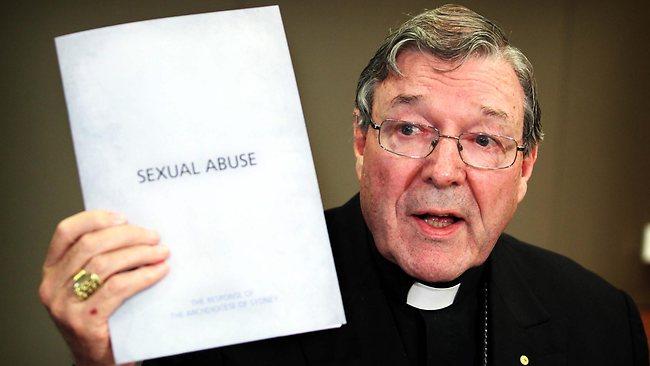So What Actually Is a Royal Commission?
Herald Sun
So what actually is a royal commission? In short, it's a formal independent public inquiry instigated by a state government or the federal government. Royal commissions are typically called whenever there is ongoing impropriety, illegal activity or gross administrative incompetence in any area of Australian life. There are also sometimes royal commissions in the wake of natural disasters and accidents.
Why are we having it again?
Because, as Detective Chief Inspector Peter Fox has revealed in shocking detail, there is overwhelming evidence of ongoing sexual abuse and alleged systemic cover-ups by members of institutions like the Catholic Church. A royal commission will test these allegations and seek to put the wheels of justice in motion. We don't know. They usually last at least a year, and sometimes several years. For example, the Royal Commission into the Building and Construction Industry ran from August 2001 to February 2004. There have been calls today for a deadline on the child abuse royal commission amid fears it could drag out for a decade.
Who will be the royal commissioner? We don't know, but it is usually a retired judge or someone of similar legal standing.
When was the last royal commission? Four years ago. Since federation, there have been 129 royal commissions. This one will be the 130th. The last one was into the equine influenza outbreak.
What's actually royal about it? Nothing, actually. Interestingly though, the Australian Law Reform Commission recently said that the term "royal" should continue to be used for reasons of "status and perceptions of independence".
So what can a royal commission actually achieve? Plenty. Royal commissions are not just passive hearings. Because their very nature is investigative, the commissioner has the power to summon witnesses under oath, seize evidence, offer indemnities to people who co-operate and so on. It is basically a government-sanctioned process with every conceivable legal power designed to weed out the truth and track down the bad guys so that they can be held to account.
Could people be prosecuted? Absolutely, yes. The 1995 Wood Royal Commission into the NSW Police Service is in some ways regarded as a failure because so many people named in it still walked free. But seven officers received jail terms as a result of it and much more importantly, public perception changed and the police force had to change with it.
Will this royal commission go over the $10 million budget? Almost certainly. For example, the HIH royal commission, launched in 2001, cost about $40 million, and it was focusing on just one insurance company.
Will every victim get a chance to have a say? Some but not all, otherwise it would go on forever. Anyway, many of them won't want to. But many of the accused will obviously have to face the royal commission whether they like it or not.
What next?
We sit back and wait for it to start. One of the most interesting things to watch will be the reaction of Catholic Archbishop George Pell, who, while officially welcoming the Royal Commission, today retained an air of defiance in the face of Peter Fox's allegations. Pell even suggested the media had inflamed the situation. The Royal Commission will likely reveal whether he has a point or not.
|
.
Any original material on these pages is copyright © BishopAccountability.org 2004. Reproduce freely with attribution.
